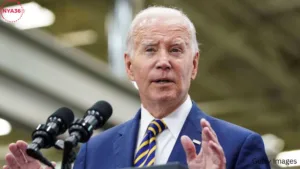The Middle East has seen a number of noteworthy events that have resulted in geopolitical tensions and worldwide economic concerns. The region has come into sharper focus as a result of the recent military action on Syria by the United States, the loud and worrisome threats made by Iran in retaliation, and the growing oil crisis.
U.S. Military intervention in Syria:
Concerns and inquiries over the nation’s foreign policy and military operations have been aroused by the United States’ recent military intervention in Syria. The United States attacked a website that it thought had ties to militia groups supported by Iran. The rocket strikes on US installations in Iraq prompted the airstrike. The strike has sparked worries about rising tensions in the area, even if its intended objective was to send a message to these militia organizations.
Iran’s Threat of reprisal:
Iran made frightening and forceful threats of reprisal in response to the American strike in Syria. Iranian officials have stated unequivocally that they consider the American action to be provocative and that they are ready to retaliate violently. There are worries about a possible military conflict because to the increased rhetoric between the United States and Iran.
Growing Oil Crisis:
The Middle East, a significant oil-producing region in the world, is dealing with a growing oil crisis. Demand growth, geopolitical unrest, and supply disruptions are some of the reasons driving up oil prices. The protracted conflict in Ukraine and the sanctions imposed on Russia, a significant energy exporter, worsen the situation. These conditions are causing energy prices to skyrocket globally, which has a big effect on consumers and economies.
Global Economic Repercussions:
The oil crisis has an impact on the world economy. Increased costs for individuals and businesses as a result of higher oil prices fuel inflationary pressures. Economic conditions that are already strained due to the COVID-19 pandemic aftermath have been made worse by this circumstance. For governments and central banks attempting to strike a compromise between energy security and economic stability, the environment is difficult.
Middle East Uncertainty:
The region’s overall geopolitical instability, Iran’s threats of reprisal, and American military activity in the Middle East all contribute to uncertainty. This uncertainty might further destabilize the Middle East and goes beyond the effects on the oil markets and the economy.
De-escalation and diplomacy:
Many are advocating for de-escalation and diplomacy in response to these escalating tensions. The world community is eager to stop a larger confrontation and is closely monitoring these events. The situation is still precarious despite continuous diplomatic efforts to lower tensions and encourage communication.
Energy Transition:
The urgency of quickening the shift to sustainable and renewable energy sources is highlighted by the present oil crisis. Countries are being pushed to invest in renewable energy alternatives in order to lessen their reliance on fossil fuels and lessen the impact of such crises, as the world struggles with the volatility of the oil markets.
In conclusion, the growing Middle East energy problem, Iran’s threats of retribution, and the American military action in Syria are all interrelated issues with significant ramifications. These incidents highlight how precarious geopolitical stability is and how urgently de-escalation, diplomacy, and a global transition to renewable energy sources are needed to meet the growing environmental and economic problems. As these events play out, the entire world is concerned.
Follow us social media: Instagram, Threads & Twitter X @nya360_ YouTube & Facebook @nya360.





